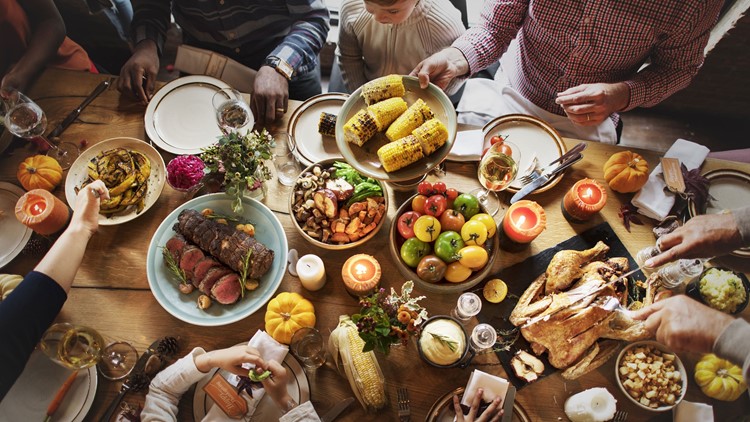One of the most important things family members may need to bring to Thanksgiving this year is their COVID-19 vaccination card.
One poll found in a survey of 2,000 US residents that nearly two-thirds of vaccinated Americans have banned unvaccinated family members from their holiday gatherings.
The poll also found:
- Nearly seven in 10 respondents (67%) said they feel they cannot go home for the holidays without getting vaccinated first
- Of the 65% who are fully vaccinated, six in 10 (58%) have reportedly cut off family members who refuse to get vaccinated, while 63% don’t feel comfortable inviting unvaccinated relatives to their parties.
- Seventy-two percent of vaccinated respondents don’t think they could ever get some of these family members to understand the importance of the vaccine.
Fourteen percent of the survey respondents claimed they don’t plan to ever get the shot.
Read more of the findings of the study here.
When approaching a relative about the issue, Millersville University psychologist Dr. Rachel MacIntyre suggests everyone determines their own safety guidelines and then have a one-on-one conversation.
She suggested approaching family members or friends by telling them how much you would like to spend time with them, but that you are concerned about safety. In general, if pressed about politics, she suggested acknowledging that there is a difference of opinion and request to talk about something else.
How do you talk to your family about vaccinations this holiday? Listen to Dr. Rachel MacIntyre, associate professor of Clinical Psychology at Millersville University:
"Reminders for everyone that emotions, while it can be intense and difficult, they are temporary. So know emotions will pass as this holiday season will pass," she said as she also advised everyone to find something they enjoy to do this Thanksgiving.
The CDC lists these recommendations for families during the holiday celebrations:
- Wear well-fitting masks over your nose and mouth if you are in public indoor settings if you are not fully vaccinated.
- Even those who are fully vaccinated should wear a mask in public indoor settings in communities with substantial to high transmission.
- Outdoors is safer than indoors.
- Avoid crowded, poorly ventilated spaces.
- If you are sick or have symptoms, don’t host or attend a gathering.
- Get tested if you have symptoms of COVID-19 or have a close contact with someone who has COVID-19.
- Even those who are fully vaccinated should wear a mask in public indoor settings in communities with substantial to high transmission.
For travelers:
- If you will be traveling in a group or family with unvaccinated people, choose safer travel options.
- Everyone, even people who are fully vaccinated, is required to wear a mask on public transportation and follow international travel recommendations.
Special considerations:
- People who have a condition or are taking medications that weaken their immune system may not be fully protected even if they are fully vaccinated and have received an additional dose. They should continue to take all precautions recommended for unvaccinated people, including wearing a well-fitted mask, until advised otherwise by their healthcare provider.
- You might choose to wear a mask regardless of the level of transmission if a member of your household has a weakened immune system, is at increased risk for severe disease, or is unvaccinated.
- If you are gathering with a group of people from multiple households and potentially from different parts of the country, you could consider additional precautions (e.g., avoiding crowded indoor spaces before travel, taking a test) in advance of gathering to further reduce risk.
- Do NOT put a mask on children younger than 2 years old.




